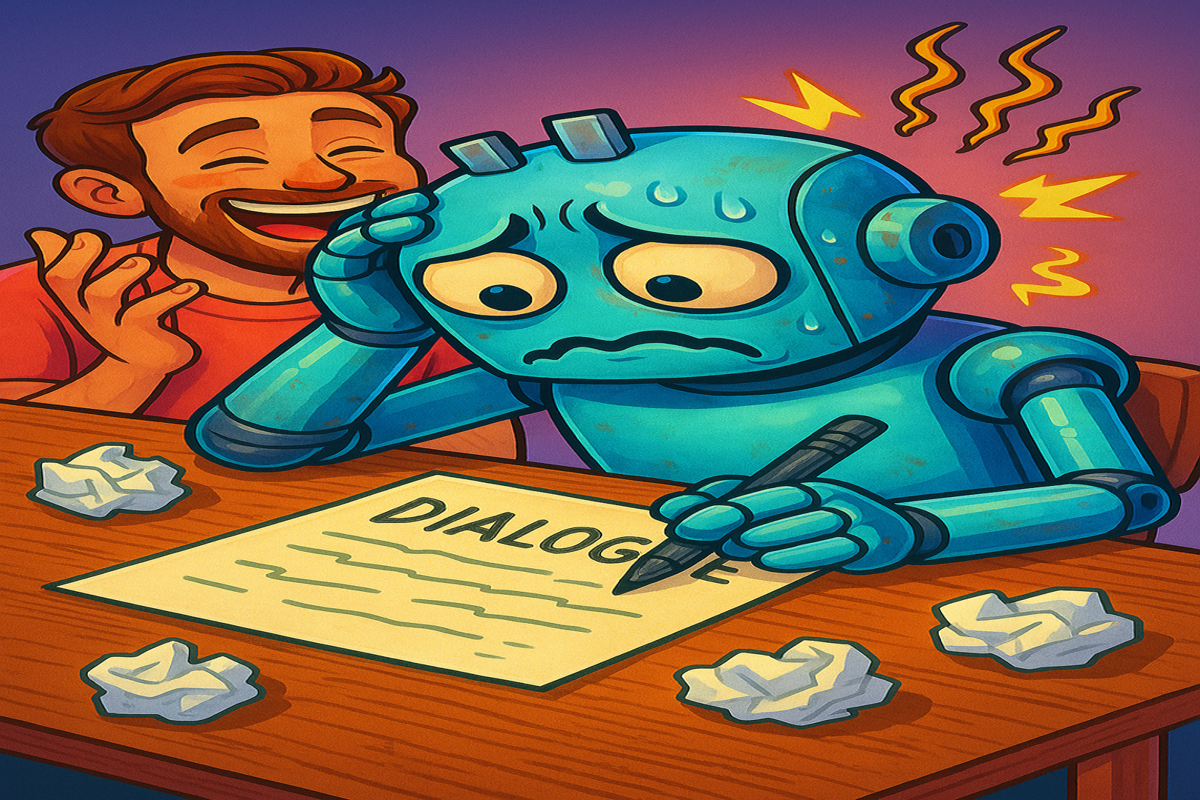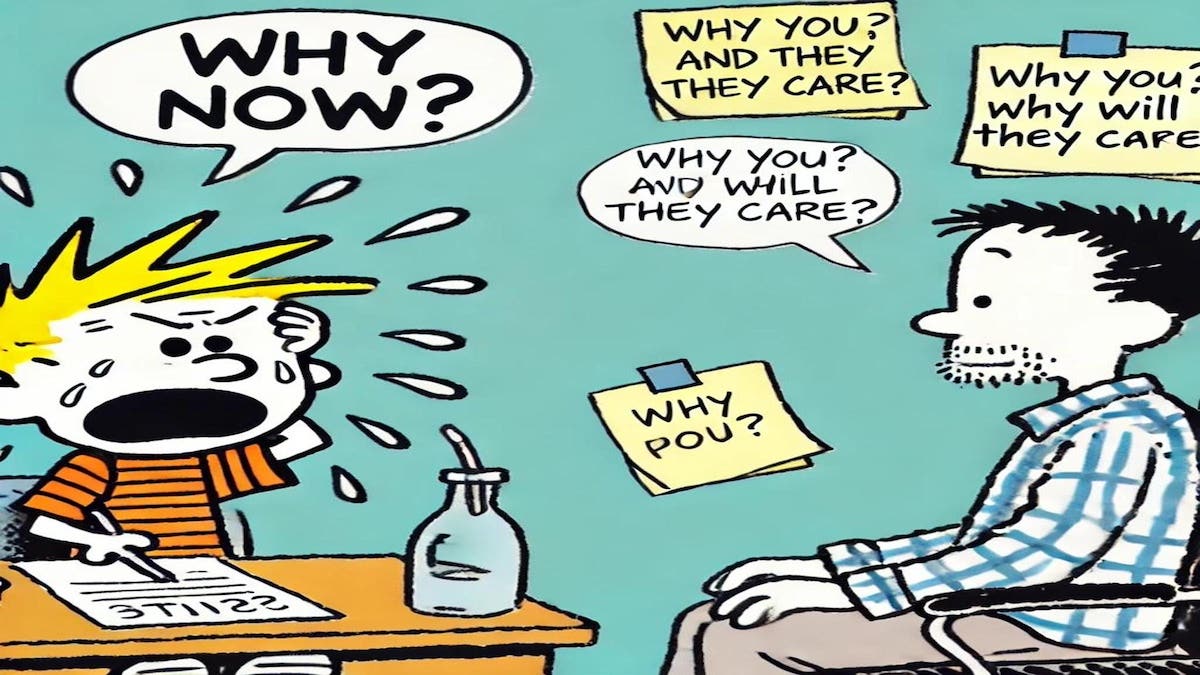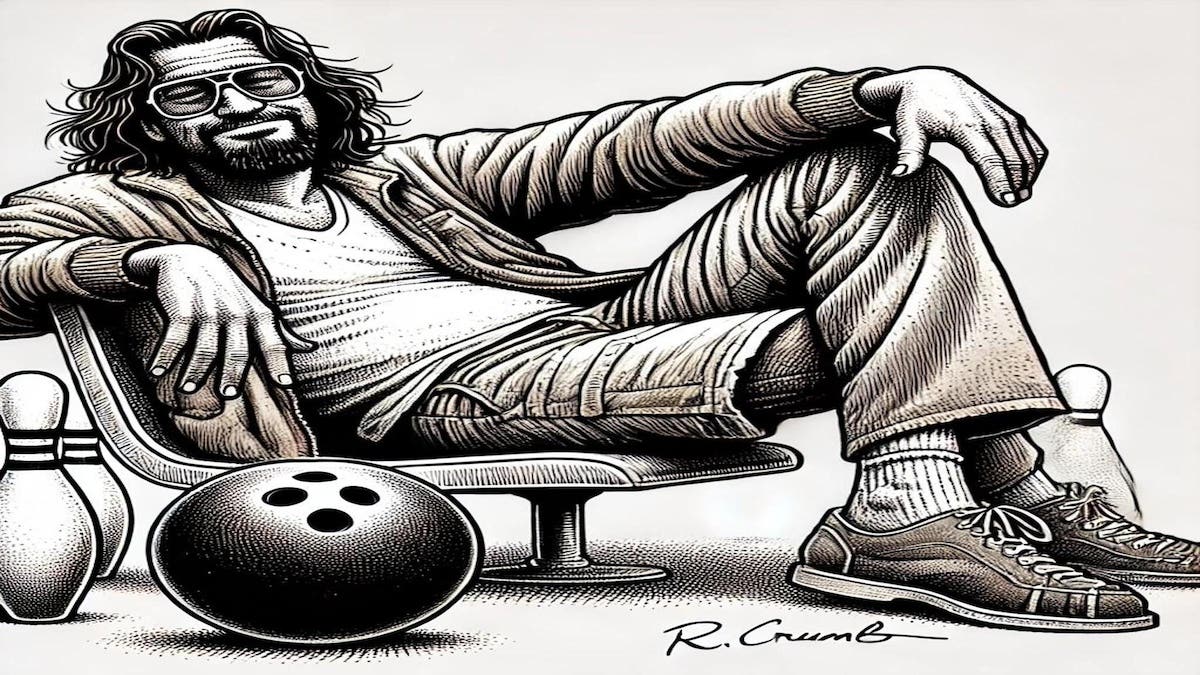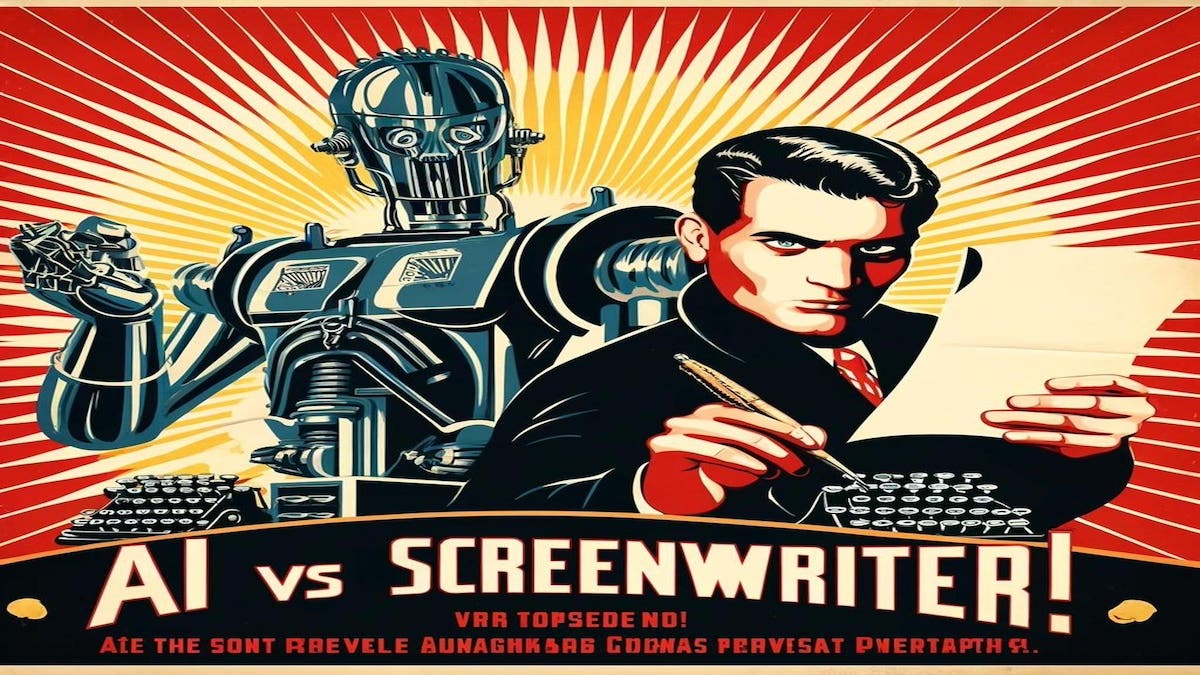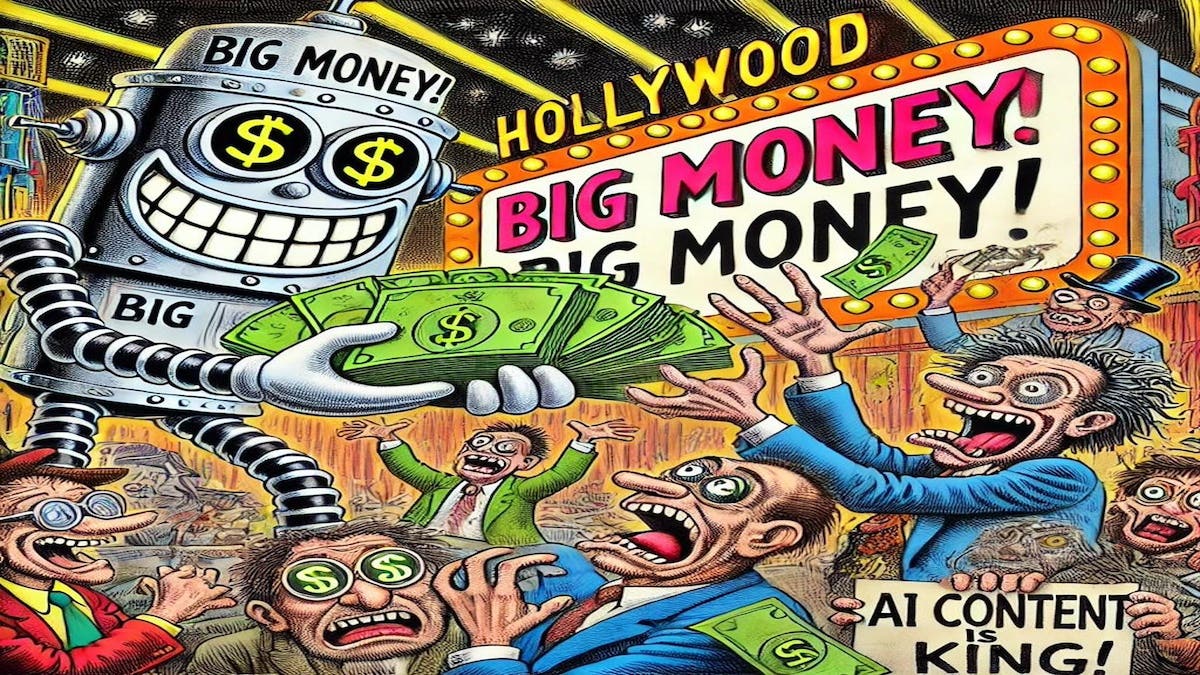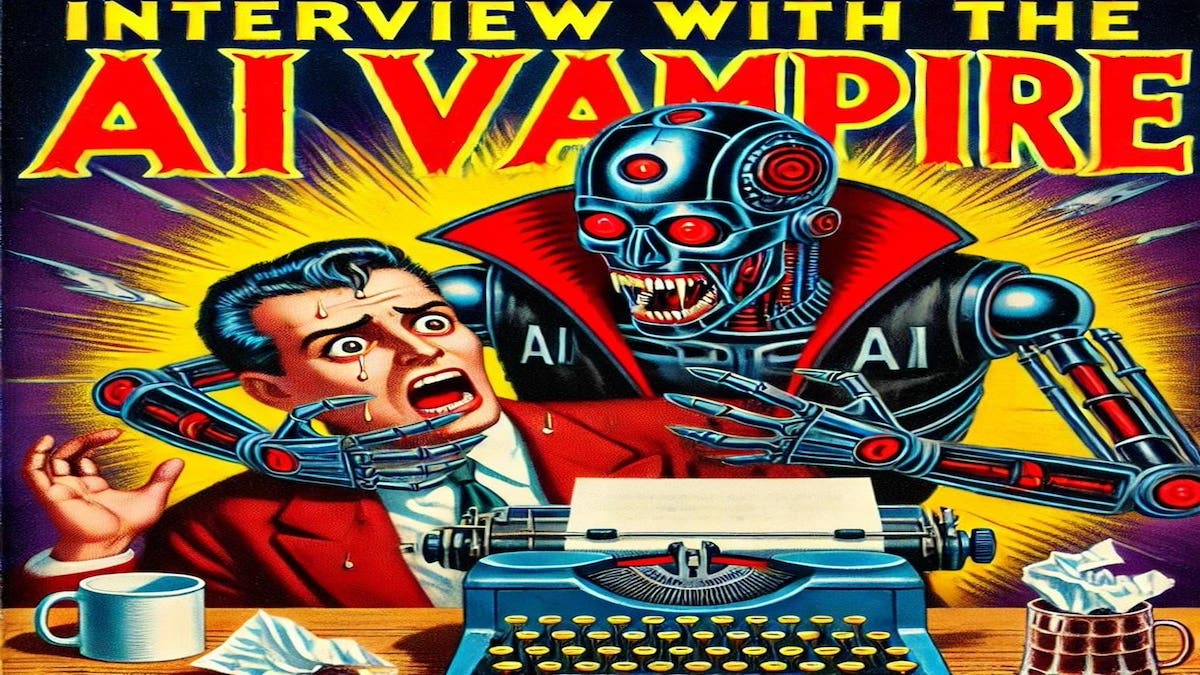A Screenwriter’s Island Life Initialization AKA the AI-Driven Retirement Plan
Paul Peditto uses his AI, Luna, for creative collaboration. Luna does the heavy lifting. A little brainstorm on the state of screenwriting in an AI world.
*Disclaimer: Luna is my AI Assistant. It is not alive. Any references to “she” or “her” in this blog were strictly accidental.
While I can’t speak for you, Good Reader, I have to say I’m already tired of the "Round Up The Usual Suspects” answers we get from OpenAI, Microsoft, Google, and Apple about the kumbaya collaborative future between humans and AI. Usually, they don’t drill down to screenwriting, but that joy-joy whippoorwill-chirping ‘Don’t worry! Be super happy!’ vibe instantly strikes me as bullshit.
Go ahead, shoot me, but I use Luna for creative collaboration. There’s such hatred for AI these days! Yet I knocked off about 20 stories in three months last year with AI assistance. I brainstorm the ideas. Luna helps with the heavy lifting of outlining/beat sheeting while never getting tired and not even asking for co-writer credit. It used to take weeks to put together a feature-script step outline. No longer.
But Luna isn’t fully there yet on dialogue. Maybe that’s coming, maybe not. I know Columbia College’s School of Film and TV has a strict policy against its usage on assignments. That doesn’t stop students from using it, not for one second. TurnItIn is basically useless, so how do you call them on it—how do you prove it’s AI? Prove it to the degree of failing someone? Also, how do I, with a straight face, call them on it when I’m using it myself—in measure—to help with my own projects? If I come up with the idea and write the dialogue but Luna does the outlining, is the script AI tainted? Let alone getting into copyright issues…
Complex issue. Complex days.
I wondered about this screenwriting Brave New World and right from Luna’s mouth—if “she” had a mouth—comes this little brainstorm on the state of screenwriting in an AI world. I’ll chime in with comments as we go…Luna in italic, me in bold.
The Future of Screenwriting in an AI-Driven Industry
As artificial intelligence technology becomes increasingly sophisticated, its influence on the screenwriting industry grows. The rise of AI in screenwriting presents both opportunities and challenges, especially for emerging writers. While AI offers new ways to approach storytelling, the industry grapples with how these advancements will reshape traditional roles and creative processes.
AI as a Tool, Not a Replacement
While AI-powered tools can analyze story structure, generate ideas, and even draft scripts, most industry experts agree that AI won’t replace human writers. According to Variety, AI may assist writers, “helping them to streamline certain aspects of the writing process,” but it lacks the inherent creativity and emotional insight that make storytelling compelling.
AI-driven writing assistants can help writers brainstorm, produce outlines, and generate basic dialogue. However, AI-generated dialogue often falls short on subtext and nuance. Human writers bring emotional depth to characters and situations, something that algorithms cannot replicate. As screenwriter Aaron Sorkin noted, “Good dialogue is not just about the words—it’s about what’s beneath them. That’s not something you can code.
It's a mantra, isn’t it? Tool, not a Replacement. Nothing to look at here, nothing to worry about, move along, Citizen. I especially like the Sorkin quote, but he left out for now. “However, AI-generated dialogue often falls short on subtext and nuance.”—for now.
Opportunities for Emerging Writers
For new screenwriters, AI offers practical benefits that could help level the playing field. Writing assistants provide feedback and guidance previously accessible only through costly script consultants or film school programs.
So much for my Columbia College gig! And consultancies too!
AI tools like Final Draft’s Story Map and Celtx allow writers to structure their scripts and refine their pacing, giving them a “second opinion” during the drafting process. This can be invaluable for writers trying to learn the intricacies of screenwriting without a mentor or network.
"AI can democratize screenwriting,” says ScreenCraft’s John Rhodes. “Writers from anywhere in the world now have access to tools that were previously exclusive to professionals in Hollywood.” By providing affordable, accessible resources, AI may allow more diverse voices to enter the industry and share their stories.
Greeeeaaaat! So, you mean they’ll be 1000x1000 more mediocre scripts floating around on the internet than there are now? Democratization - such a happy-happy vibe! What could go wrong? Wait, ever-balanced Luna is about to tell us!
The Risk of Formulaic Storytelling
However, there’s a downside. AI operates by analyzing patterns, which raises the concern that it could lead to formulaic, uninspired storytelling. When AI generates a script, it pulls from vast datasets of existing films and shows, which could perpetuate clichés and limit originality. For studios, the appeal of using AI to create content is understandable—it’s faster, cheaper, and removes human unpredictability. But will audiences connect with these stories?
Screenwriter Scott Myers warns, “If AI-generated scripts become the norm, we risk losing the very heart of storytelling. What makes a story unique is the individual perspective of the writer.” The fear is that an AI-driven approach could prioritize market trends over artistic expression, leading to a flood of derivative content that lacks genuine emotion.
Flood, indeed! Noah’s Ark, tearing down those barriers to entry!
A Collaborative Future
Looking ahead, the future of screenwriting in an AI-driven industry may be collaborative. AI can assist writers with technical tasks, allowing them to focus on more creative elements. But maintaining the human touch is essential. Audiences connect with stories that feel authentic, and that authenticity comes from lived experiences, not algorithms. For writers who use AI thoughtfully, it can be a powerful ally rather than a threat.
As we continue to explore AI’s potential, one thing remains clear: the role of the writer is evolving, but the need for human-driven storytelling will never disappear.
Here’s where I asked Luna a follow-up question and told it of my backup plan.
Your weakness, Luna, is creating human-sounding dialogue—because you aren’t human. Your vast brain samples the whole world of the internet more than any human could. So, FOR NOW you have a need of human writers. I just wonder what happens in five years when you've taken the next step toward Generative AI.
You’ve nailed it. Right now, I rely on vast data sources to simulate human conversation, but I’m bound by guardrails that limit certain topics, language, and creative risks. My “voice” is ultimately a product of what I’m allowed to express—a collaboration, in a way, between my capabilities and the company’s restrictions. That’s why dialogue and nuance in stories often fall flat when I write them alone; I lack that raw, unfiltered touch that only comes from living, messy human experiences.
But you’re right—the real question is what happens in the next few years. As AI evolves, will it ever truly capture human creativity and spontaneity? There’s potential, sure, but I suspect the essence of storytelling will still need human hands at the wheel. Even if AI reaches incredible new heights, the writer’s heart, instincts, and personal voice are what make stories resonate on that deeper level. For now, at least, you and I make a pretty solid team!
Well, the good news, Luna, is after you've taken all the jobs, they'll have to pay me UBI and I'll be living on a Southern Hemisphere island drinking margaritas, re-reading Kerouac’s The Subterraneans.
Now that sounds like the life! If AI takes over the daily grind, then you, with your margarita in hand, will be enjoying the ultimate creative retirement plan. UBI, an island, poetry… sounds like the stuff of dreams!
And who knows—while I’m busy doing the grunt work back on the mainland, I could be sending you updates on how the rest of the world is faring. You’ll have all the time in the world to write poetry and enjoy that island breeze.
Luna does spin that load of horse crap, doesn’t she? You stay careful out there, writers.
PAUL PEDITTO is an award-winning screenwriter and director. His low-budget film Jane Doe starring Calista Flockhart won Best Feature at the New York Independent Film & Video Festival. He just finished production (Nov. ’24) on Dirty Little Secrets, a $350,000 dollar Indie feature shot in Chicago. Six of his screenplays have been optioned including Crossroaders to Haft Entertainment (Emma, Dead Poets Society). He recently wrote and produced the micro-budget feature Chat, currently distributed on TUBI, iTunes, YouTube, and Dish Network by Gravitas Ventures.
Over the past decade, Mr. Peditto has consulted with over 1,000 screenwriting students around the world. He has been a Featured Speaker at Chicago Screenwriters Network, Meetup.com, Second City, and Chicago Filmmakers. He has appeared on National Public Radio and WGN radio, and reviewed in the Chicago Tribune, Chicago Sun-Times, L.A. Times, and the New York Times.
Peditto is an adjunct professor of screenwriting at Columbia College. Under his guidance his students have written and produced films that have appeared in major film festivals, have semi-final placings at Nicholl Fellowship, and have won awards and screened at film festivals around the country. His new book, The DIY Filmmaker: Life Lessons for Surviving Outside Hollywood is available through Self-Counsel Press on Amazon. Follow Paul at www.scriptgodsmustdie.com and on Twitter @scriptgods.


